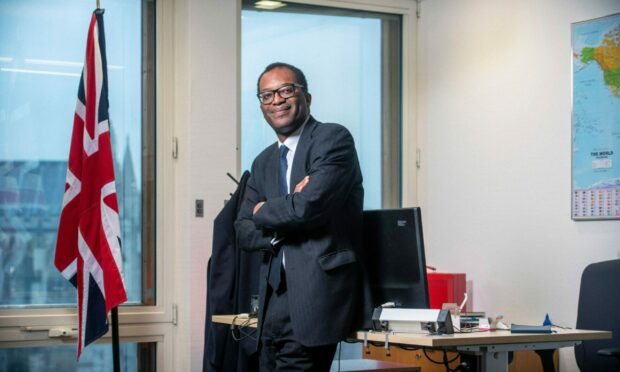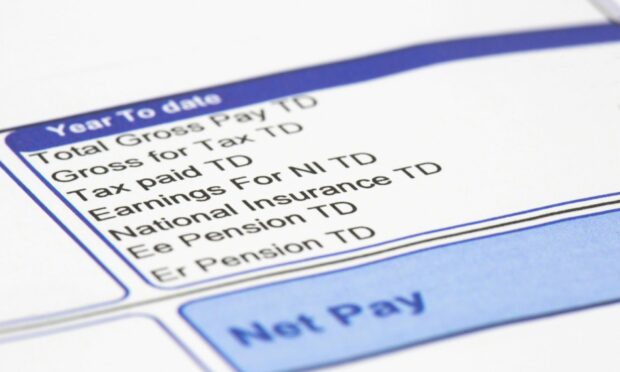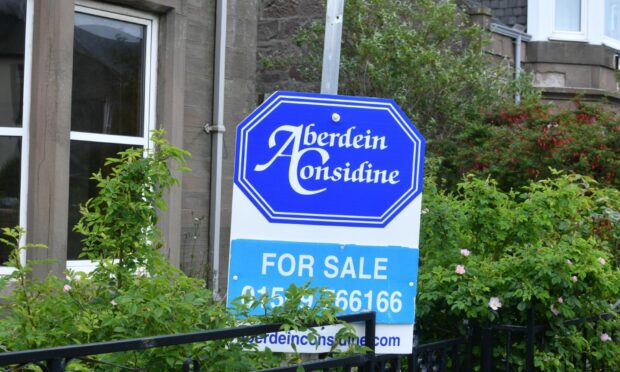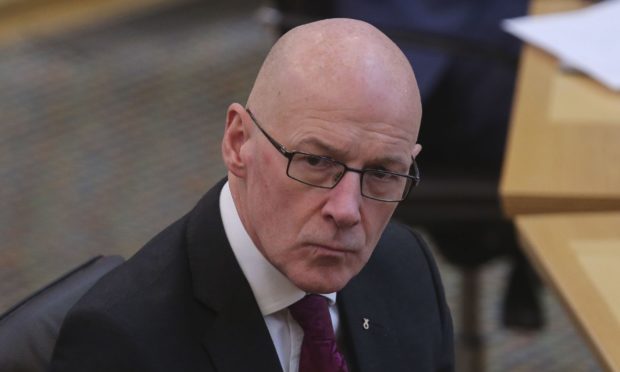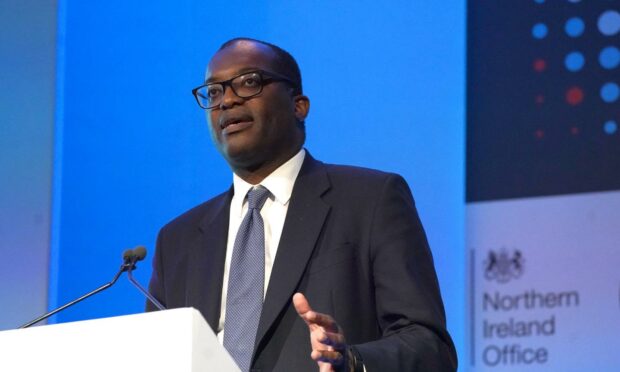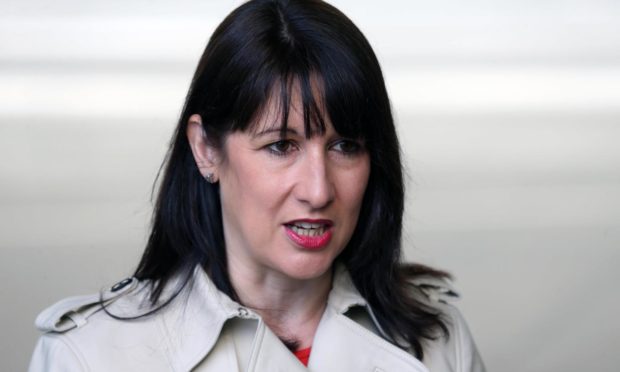Chancellor Kwasi Kwarteng stunned the country by announcing a massive £45 billion package of tax cuts.
Despite being billed as a “mini-Budget”, the measures unveiled at Westminster on Friday were described as the most far-reaching for decades.
The Tory government insisted millions would benefit under its bold plan to deliver growth.
But critics branded the move a reckless gamble that was already backfiring.
We’ve taken a look at some of the key announcements and what they mean for Scotland.
1. What do the tax changes mean for Scots?
Mr Kwarteng outlined a £45 billion package of tax cuts to try to boost growth.
However, many of the most significant changes will not apply to taxpayers in Scotland, due to powers being devolved to Holyrood.
These include the decision to scrap the 45% top rate of tax for higher earners, leaving the top rate at 40% south of the border.
In Scotland, a top rate of 46% tax on earnings over £150,000 will remain, resulting in a major difference of 6%.
It means that the gulf in taxation between Scotland and the rest of the UK will grow dramatically wider, unless the Scottish Government responds with similar measures.
Mr Kwarteng also announced a cut to the basic rate of income tax to 19p.
In Scotland there is already a starter rate of 19p and a basic rate of 21p.
On social media, Tories suggested higher earners could move south if the Scottish Government did not follow suit and cut taxes.
If the SNP/Green Govt doesn’t follow the Chancellor’s tax cut plans, workers in Scotland will be paying more – and the tax gap for highest earners will be 6%. At that level we will see significant behaviour change & tax revenues in Scotland will fall still further. (1/2)
— Murdo Fraser (@murdo_fraser) September 23, 2022
However, First Minister Nicola Sturgeon condemned the Budget and the priorities of the Tory administration under Prime Minister Liz Truss.
Other tax changes unveiled by the chancellor will apply across the UK
These include the reversal of April’s National Insurance rise, which the Westminster government says will benefit 2.3 million workers in Scotland, worth an average of £285 a year.
A UK gov ‘budget’ that benefits wealthiest over poor/middle income earners, tanks the £, pushes up the cost of (v substantial) borrowing, and is castigated as reckless.
And yet Tories (& right wing commentators) will demand that @scotgov blindly follows suit. Mmm…— Nicola Sturgeon (@NicolaSturgeon) September 23, 2022
A decision to scrap a planned rise in corporation tax will also help some Scottish businesses.
Distilleries and breweries will welcome a freezing of alcohol duty for another year, as well as plans to reform the tax.
2. Will it impact home-buyers and sellers?
The mini-Budget included a pledge to raise the threshold for paying stamp duty in England to £250,000, while for first-time buyers it will be £425,000.
In Scotland, stamp duty was replaced with a Land and Buildings Transaction Tax (LBTT) in 2015.
The current LBTT rate is 2% on purchases between £145,001 to £250,000, and 5% on properties costing £250,001 to £325,000.
As with income tax changes, the impact on Scotland will depend on decisions made by the Scottish Government.
Key question for the Scottish Government: will it follow the UK and slash income tax and stamp duty (LBTT), or will it hold firm and make the case for higher taxes? Opportunity for big divergence here #MiniBudget
— Laurie Macfarlane (@L__Macfarlane) September 23, 2022
However, Finance Secretary John Swinney warned the Budget measures risked “inflating an already booming housing market”.
He added: “On Land and Buildings Transaction Tax and on Scottish income tax, the Scottish Government will set out its plans as part of the normal budget process.”
3. What happens to Holyrood’s budget?
The decisions taken by the UK Government in relation to income tax and stamp duty will not directly affect Scotland but will alter the devolved grant.
Scotland’s budget has been squeezed in recent months with higher-then-expected pay deals for public sector workers, due to inflation and the cost of living crisis.
The Tories said the changes would mean the Scottish Government receives more than £600m over the three-year 2021 spending review period.
However, Mr Swinney said: “Because of inflation, the Scottish Government’s budget is worth £1.7 billion less than it was when we set it in December, yet the chancellor has refused to provide a single additional penny for public services or increase public sector pay.
“We are doing everything within our power to support people, public services and the economy, but these efforts are under threat by a reckless UK Government beginning a new, and dangerous race to the bottom.”
4. Will Scotland get new ‘investment zones’?
The UK Government said it would look to work with the Scottish Government and local authorities to set up radical sounding low-tax “investment zones” in specific sites across the UK.
Each zone will offer “generous, targeted and time limited tax cuts” for businesses and “liberalised planning rules” to release more land for housing and commercial schemes.
The Westminster government said these would be hubs for growth, encouraging investment in new shopping centres, restaurants, apartments and offices, and creating thriving new communities.
Mr Swinney said he will have a “close look” at the details.
But Paul Swinney, director of policy and research at the Centre for Cities, questioned the effectiveness of investment zones.
He said: “Cutting regulation – which is the main premise of the investment zones – will make these places even cheaper places to do business.
“It doubles down on their existing ‘strengths’, rather than overcoming the barriers that slow the types of investments that will create high-wage, high-productivity jobs in sufficient numbers.”
5. What was announced on energy bills?
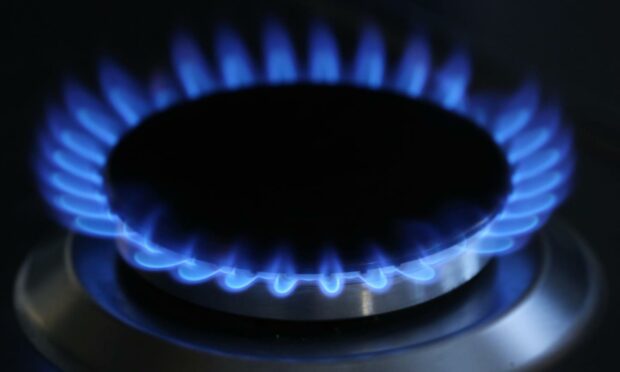
Mr Kwarteng confirmed details of the government’s energy bill freeze.
The government claims the plan, which is expected to cost £60bn for six months from October, will reduce inflation by five percentage points.
It said it would protect thousands of businesses across Scotland from rising energy costs, with discounts of wholesale gas and electricity prices.
The Energy Price Guarantee will save the typical household £1,000 a year on their energy bill and halve the cost of business energy bills, the Tories added.
However, critics said that bills would still rise to unacceptable levels and is far higher than people were paying last year.
1/
Having been promised an energy price freeze, millions will be shocked when hit with a 25% rise in fuel bills in October.
5 million kids risk being pushed into poverty, with charities having to stop feeding the hungry so they can help the starving.
We have to act.
[THREAD]— Gordon Brown (@GordonBrown) September 23, 2022
SNP MP Alison Thewliss said: “The measures announced by the chancellor today do not go anywhere near far enough to mitigate the Tory-made cost of living crisis, and it’s shameful that the Tory government is increasing energy prices again to £2,500 instead of introducing a real freeze on bills.”
Have the Tories trashed their legacy?
Economists and Opposition MPs said the chancellor had taken a massive gamble that could backfire.
The Institute for Fiscal Studies said it was the “biggest tax-cutting” Budget since 1972, which he said “ended in disaster”.
£45 billion of tax cuts. This is biggest tax cutting event since 1972. Barber's "dash for growth" then ended in disaster. That Budget is now known as the worst of modern times. Genuinely, I hope this one works very much better.
— Paul Johnson (@PJTheEconomist) September 23, 2022
Labour’s Shadow Chancellor Rachel Reeves said: “This is casino economics – gambling the mortgages and finances of every family in the country to keep the Tory party happy.
“Twelve years of Tory government have left us with lower growth, lower investment, lower productivity, and today – the lowest consumer confidence since records began.
“The only things that are going up are inflation, interest rates and bankers’ bonuses.”
Wendy Chamberlain, Liberal Democrat MP for North East Fife, highlighted market reaction said it was the “biggest economic gamble of my lifetime”.
This Growth plan is the biggest economic gamble of my lifetime and it's clear both how reckless and how unlikely it is to succeed the markets think it is 👇 https://t.co/ErGtiw4Mv1
— Wendy Chamberlain MP (@wendychambLD) September 23, 2022
